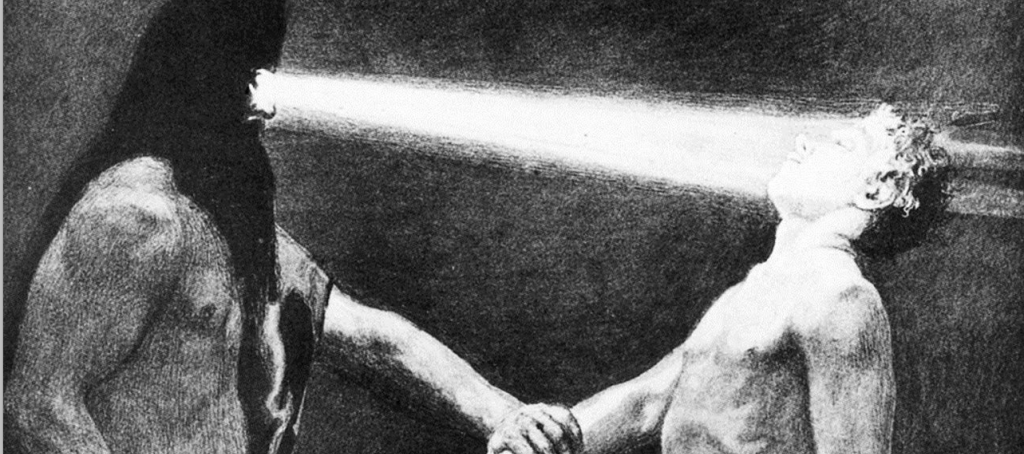
Carl Jung’s psychological concepts, particularly the collective unconscious, archetypes, and the shadow, offer profound insights into understanding organizational culture and its impact on individuals within those cultures. In the context of culture, whether it manifests positively or negatively, Jung’s theories illuminate the complexities of human behavior and the dynamics at play within organizations.
The collective unconscious, as proposed by Jung, suggests that individuals share a reservoir of universal symbols, images, and experiences inherited from ancestral past. Applied to organizations, this concept implies that there are underlying, deeply ingrained patterns of thought, behavior, and emotion that influence the collective identity and dynamics within the workplace. In a positive light, a shared collective unconscious can foster a sense of belonging, unity, and common purpose among employees. It can give rise to cohesive organizational cultures built on shared values, beliefs, and traditions. However, if negative or destructive patterns exist within this collective unconscious, they can perpetuate toxic behaviors, biases, and power dynamics within the organizational culture, leading to divisions, conflicts, and a lack of cohesion.
Similarly, Jung’s theory of archetypes suggests that certain fundamental patterns or symbols resonate with human experience across cultures and time. In the organizational context, archetypes manifest as recurring themes or roles that individuals and groups embody within the workplace. Positive archetypes, such as the Heroic leader who inspires and motivates others, the Wise Sage who provides guidance and mentorship, or the Nurturing Caregiver who fosters a supportive environment, can contribute to a healthy organizational culture characterized by innovation, collaboration, and growth. Conversely, negative archetypes, such as the Tyrant leader who imposes authoritarian rule, the Victim mentality that perpetuates blame and passivity, or the Trickster who engages in deceitful practices, can undermine trust, morale, and productivity within the organization.
Moreover, Jung’s concept of the shadow, representing the unconscious aspects of personality that are often repressed or denied, holds significant implications for organizational culture. Within organizations, the shadow can manifest as hidden biases, unresolved conflicts, or overlooked weaknesses that remain unacknowledged or suppressed. When these shadow aspects go unaddressed, they can give rise to dysfunctional behaviors, organizational dysfunctions, and systemic issues that hinder progress and well-being. However, by confronting and integrating the shadow aspects, both individually and collectively, organizations can promote self-awareness, authenticity, and resilience. They can create cultures characterized by transparency, accountability, and continuous learning, fostering an environment where individuals feel empowered to embrace their complexities and contribute their fullest potential.
In conclusion, Jung’s theories offer valuable insights into understanding the intricate dynamics of organizational culture and its implications for individuals and groups within those cultures. By recognizing the influence of the collective unconscious, archetypes, and the shadow, organizations can strive to cultivate positive cultures that nurture growth, innovation, and well-being while addressing and transforming negative patterns that impede progress and harmony.
Tim HJ Rogers
Consult | CoCreate | Deliver
I support people and teams to grow, perform and succeed unlocking potential as a partner Consultant, Coach, Project and Change Manager. Together we can deliver projects and change, and improve the confidence, capacity, drive and desire of the people I work with.
ICF Trained Coach | MBA Management Consultant | PRINCE2 Project Manager, Agile Scrum Master | AMPG Change Practitioner | Mediation Practitioner | BeTheBusiness Mentor | 4 x GB Gold Medalist | First Aid for Mental Health | Certificate in Applied Therapeutic Skills
#OrganizationalCulture; #JungianPsychology; #CollectiveUnconscious; #ArchetypesInWorkplace; #ShadowIntegration; #CultureAndBehavior; #PsychologyOfOrganizations; #WorkplaceDynamics; #PositiveCulture; #SelfAwarenessInWorkplace
